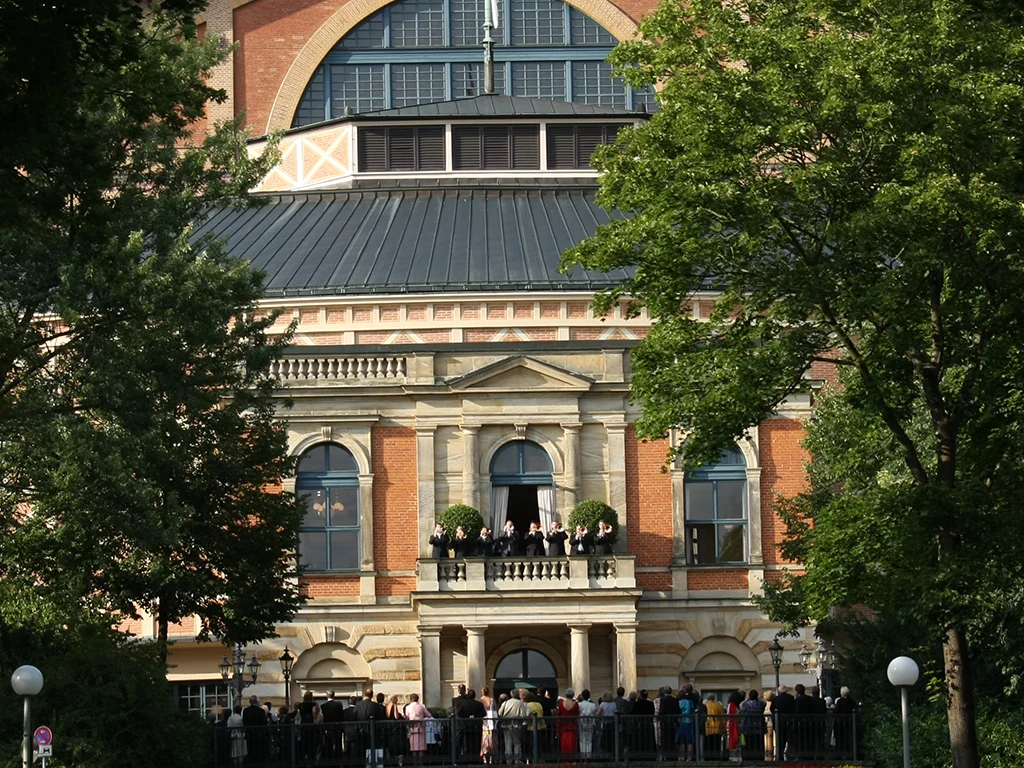Fifty years ago today, Wieland Wagner, who, together with his brother Wolfgang, re-established the Bayreuth Festival after World War II and founded that much-cited, initially reviled and later boundlessly celebrated, often imitated “New Bayreuth” and led it to international recognition, died far too soon.
As early as 1951, Wieland Wagner confessed: “Fidelity and change, the preserving and the progressive, are the poles of all living things. Virtues in a wise sense, if exaggerated beyond themselves, they must inevitably lead to stagnation or dissolution. […] The transition from fidelity to change is inevitable. There is nothing ‘eternal’. […] Wagner’s legacy must not be mummified in misunderstood fidelity to the work and preserved as a museum exhibit for all time.”
In this spirit, the participants of the Bayreuth Festival commemorate his great artistic personality.
The funeral service for Wieland Wagner took place on October 21, 1966, at the site of his passionate work, on the stage of the Festspielhaus. Members of the Festival Orchestra under the direction of Pierre Boulez and the Festival Choir under Wilhelm Pitz provided musical accompaniment for the ceremony; eulogies were given by Ernst Bloch, Carl Orff, and Wolfgang Windgassen, among others. Our photo shows the laid-out coffin, in front of it the death mask of the deceased and some of the countless funeral wreaths.
